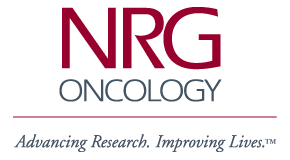

NSABP Members' Area
Password Protected - Access
Limited to NSABP Participating
Institutions Only
NSABP Foundation, Inc.
General NSABP Information
Financial Conflicts of
Interest Policy
Contact the NSABP
Employment

Clinical Trials Information
Clinical Trials Overview
Protocol Chart
Never Say Lost
Treatment Trials Information
Protocol B-51
Protocol B-52
Protocol B-53/S1207
Protocol B-55/BIG 6-13
Prevention Trials Information
Protocol P-1 - BCPT
Protocol P-2 - STAR
To report problems, ask
questions or make comments,
please send e-mail to:
Webmaster@nsabp.pitt.edu
Gene Expression and Benefit of Chemotherapy in Women With Node-Negative, Estrogen Receptor-Positive Breast Cancer.
Paik S, Tang G, Shak S, Kim C, Baker J, Kim W, Cronin M, Baehner FL, Watson D, Bryant J, Costantino JP, Geyer CE Jr, Wickerham DL, Wolmark N.
J Clin Oncol. 2006 Aug 10;24(23):3726-34. Epub 2006 May 23.
Abstract
Purpose: The 21-gene recurrence score (RS) assay quantifies the likelihood of distant recurrence in women with estrogen receptor-positive, lymph node-negative breast cancer treated with adjuvant tamoxifen. The relationship between the RS and chemotherapy benefit is not known.
Methods: The RS was measured in tumors from the tamoxifen-treated and tamoxifen plus chemotherapy-treated patients in the National Surgical Adjuvant Breast and Bowel Project (NSABP) B-20 trial. Cox proportional hazards models were utilized to test for interaction between chemotherapy treatment and the RS.
Results: A total of 651 patients were assessable (227 randomly assigned to tamoxifen and 424 randomly assigned to tamoxifen plus chemotherapy). The test for interaction between chemotherapy treatment and RS was statistically significant (P = .038). Patients with high-RS (> or = 31) tumors (ie, high risk of recurrence) had a large benefit from chemotherapy (relative risk, 0.26; 95% CI, 0.13 to 0.53; absolute decrease in 10-year distant recurrence rate: mean, 27.6%; SE, 8.0%). Patients with low-RS (< 18) tumors derived minimal, if any, benefit from chemotherapy treatment (relative risk, 1.31; 95% CI, 0.46 to 3.78; absolute decrease in distant recurrence rate at 10 years: mean, -1.1%; SE, 2.2%). Patients with intermediate-RS tumors did not appear to have a large benefit, but the uncertainty in the estimate can not exclude a clinically important benefit.
Conclusion: The RS assay not only quantifies the likelihood of breast cancer recurrence in women with node-negative, estrogen receptor-positive breast cancer, but also predicts the magnitude of chemotherapy benefit.
PMID: 16720680